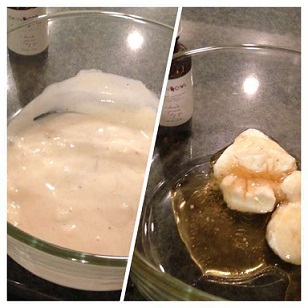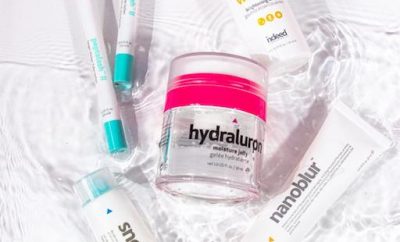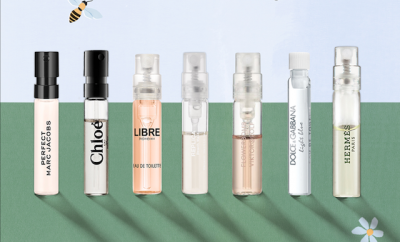
Beauty
Winter Skincare Tips
With cold weather and blizzards pounding the west coast and most of the US, it’s good time to reconsider your skincare routine. If you’re like me, you’re inside hiding from the storms with the heat on and drinking lots of dehydrating hot liquids like tea and coffee. Although these tactics keep us warm, they are very hard on our skin, Hot showers or baths further dry out the skin.
Cold weather brings lowered humidity, making dry and itchy skin an uncomfortable but customary part of the winter season. In Winter, the body naturally reacts to the abrupt temperature changes. In addition to seasonal changes, drying soaps and detergents can trigger factors such as eczema, psoriasis, and aging creating additional seasonal skin irritation.
As most of us experience the arctic chill (and even snow in Souther California), I reached out to Dr. Julie Russak, M.D., FAAD., Board-Certified Dermatologist and founder of Russak Dermatology Clinic and Russak+ Aesthetic Center to ask her advice on how to best care for skin in the colder weather.
“Paying careful attention to your own body and taking note of any skin discomfort is one of the first steps to relieve any itching and dryness,” says Dr. Russak. “Because skin irritation is common during the winter, with cold weather as one of the top culprits for itchy skin, there are many over-the-counter treatments available to help quickly address winter itch at the first sign of discomfort.”

Honey is a natural moisturizer with antimicrobial properties
To help soothe itchy and dry winter skin, try the following tips
Know your skin type: Pay attention to your skin type. It’s important to use skincare products geared specifically for your skin type – whether it’s normal, dry, oily, combination or sensitive skin. Oil-free soap is recommended for acne-prone skin and for dry skin, it is best to avoid witch hazel.
Use a good moisturizer. Apply an intensive moisturizer or ointment when stepping out of the shower. Water evaporates off the skin quickly after a shower and can leave skin feeling dry, making it the perfect time to moisturize skin. Powerhouse ingredients like hyaluronic acid, lactic acid, and petrolatum bind water and help retain moisture. Petrolatum is used in products like Aquaphor Healing ointment which can be used to soothe over dry and cracked skin as well as prevent moisture loss.
Use oil-free and fragrance-free soaps, lotions, and creams. Those who frequently hand-wash and bathe use plenty of drying soaps with irritating ingredients which further cause skin discomfort in the winter. Make sure to apply a fragrance-free lotion or hand cream after washing hands to help soothe and subdue dry and patchy skin.
Use a hypoallergenic, fragrance free laundry detergent. Laundry detergent with artificial dyes and skin irritants can trigger skin reactions and cause further irritation to dry skin – especially with all of winter’s extra clothing: layers, scarves, sweaters, hats, and now masks.
Try using a clear detergent when washing clothing and face mask. These products are specifically formulated for sensitive skin and dermatologist-tested to help avoid skin irritation and itchiness altogether, and avoid products that advertise “wrinkle free” such as drying sheets.

Mixing my honey yogurt mask with SkinOwl lavender oil.
Use a thicker cream or ointment if lotion isn’t hydrating enough. For those who need extra moisture and protection from the dry air, a cream is a great barrier for the skin since it’s thicker, locking in moisture. For a comprehensive winter skin routine, try a light serum on the face followed by a thicker cream or oil. I even like to use olive oil or Manuka Honey Cream on my face. You can even follow this recipe to make your own honey yogurt mask at home.
Don’t forget to hydrate by drinking at least 8 glasses or water a day. For deeper hydration, consider an IV Drip like the Myer’s cocktail
Avoid extreme temperature changes. A humidifier is great for those who suffer from dry skin and eczema as temperatures fluctuate throughout the seasons. A humidifier can help the indoor spaces maintain a relatively cool environment with a humidity level of 30-40% for the winter months.
“While over the counter options are quick and simple to implement into your lifestyle, make sure to consult your dermatologist before making any extreme changes to skincare and see if these changes are right for your skin conditions,” adds Dr. Russak.
Thanks to Dermatologist Julie Russak for sharing her winter skincare tips !
















0 comments